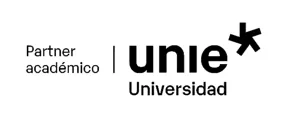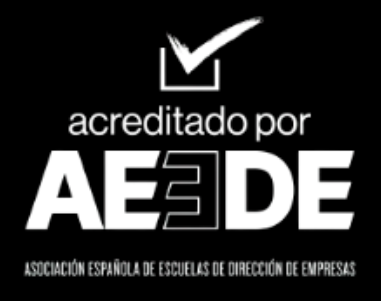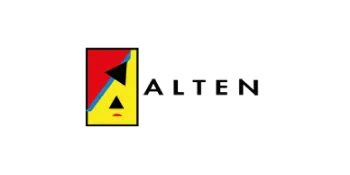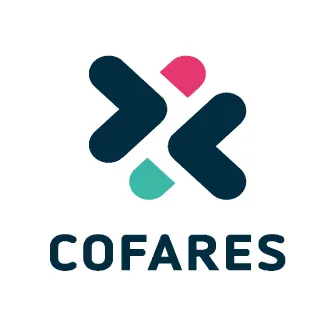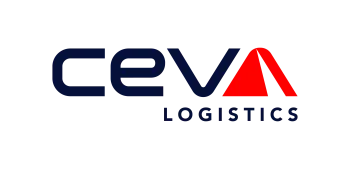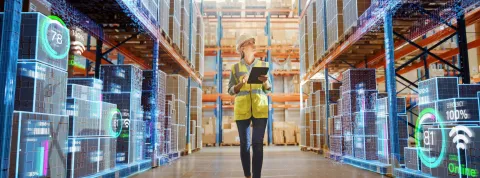
Master in Supply Chain Management & Logistics
- OCT. 2026 - 10 months
- 60 ECTS
- Young Professional
- Full Time - English
Presentation of the Master in Supply Chain Management & Logistics
This master's degree is taught in ENGLISH
To operate in a fully globalized, competitive and changing economy, organizations require a greater level of efficiency, speed and productivity.
Therefore, these organizations need professionals equipped to lead all the management functions of the different areas of the Supply Chain and Logistic management.
The Master in Supply Chain Management & Logistics of EAE Business School Madrid will give you the multifaceted professional profile needed to operate effectively with confidence in the different areas of Supply Chain and Logistics, including procurement, planning, production, logistics and distribution.
You will gain a comprehensive overview of all the fields in the highest demand among companies, and adapted to the new changes in business management.
This Master in Supply Chain has the Lean Sx Sigma Yellow Belt training that will allow you to apply the main basics of Lean Six Sigma in your organization and actively participate in continuous improvement teams. It has been developed to ensure that team members understand the purpose of Lean Six Sigma and what their role will be within projects. You will effectively identify customer requirements, discover improvement potential using Six Sigma methods and tools and participate in improvement sessions (Kaizen).
Moreover, this Master gives you the opportunity to prepare to successfully obtain the level 1 SCPro 1 certification of the CSCMP, which accredits the graduate’s extensive knowledge of the supply chain, a real differential factor as a professional, all thanks to this Master.
OFFICIAL MASTER'S DEGREE
On successful completion of your program, you will receive a double qualification: Master in Supply Chain Management & Logistics from EAE Business School and Master in Supply Chain Management & Logistics from Universidad Internacional de la Empresa (UNIE).
*Official degree recognized by the Ministry of Education of Colombia and SUNEDU.
Enroll now and start enjoying your career boosting plan.*
From the moment of your enrollment we will start working together in the materialization of your professional project through a personalized development plan. Are you going to miss it? Request information and we will explain it to you.
*This service applies only to on-site programs.
Reason to take the Master in Supply Chain Management & Logistics
- Professional SCPro certification: The syllabus and teaching materials on the Master are designed to ensure that students who want to can sit the SCPro Level 1 certificate successfully. This accreditation gives your professional career a boost to the next step.
- CSCMP quality assurance: EAE Business School is certified by the Council of Supply Chain Management Professionals, giving this program the maximum guarantee of quality.
- Operations management game: have a more realistic experience as the program has project management software that enables you to recreate the challenges faced by a company’s Logistics Department.
- Advisory board: The syllabus has been developed in collaboration with 25 professionals from leading companies, including PepsiCo, Nike, DHL, Danone, Accenture, Fujitsu, Grupo Planeta, Mango and Puig, to name just a few. This ensures the maximum alignment between the contents and the professional world.
- Residential program in California: At the end of the tuition period, you have the option to train abroad on a two-week residential program (at an additional cost) at UC Berkeley, California.
- True Potential Experience: Enjoy an experience that combines the Master in Supply Chain Management & Logistics with a Personalized Professional Development Plan, guided by a True Potential Advisor, who will help you find, focus and develop your true potential.
El Mundo Ranking 2022
QS Ranking 2022
MERCO Talento 2022
Syllabus
- Management and management skills in a new disruptive environment
- Strategic direction and logistical framework
- Strategic and Competitive Market Analysis: Corporate, Competitive, and Functional Strategies
- Diversification Vs Specialization: Shaping the Scope of Activity
- Cooperation Vs Competition: Managing Strategic Alliances
- Strategic Planning, Corporate Culture, and Organizational and Job Design: The Strategy-Structure Fit
- Prospective planning and competitive dynamics
- Corporate objectives and value creation
- Capacity and Resource Management: Sources of Sustainable Competitive Advantage
- Organic Growth Vs Outsourced Growth
- Economies of Scale Vs Diseconomies of Scale
- Operations Strategy: Adjusting the Operations Strategy to the Corporate Strategy
- Strategic Design and Innovation: Blue Ocean Strategy
- Competitive logistics strategy
- Marketing and sales management: your strategic function
- Identification of the relevant market
- Segmentation and value proposition
- Operational Marketing and Relationship Marketing: The Value of the Product/Service, the Price and How to Reach the Consumer (Distribution)
- Marketing digital
- The marketing plan and its integration into the company's operations: Logistics marketing
- The profile of management skills in the business and logistics field: Integrated management system
- Communication as a tool: persuade versus convince and manipulate
- Work teams: Effective training and leadership of work teams. High-performance teams
- The strategic management of people in organizations
- Human Capital as a Source of Competitive Advantage: Labor Cycle Management
- People Development and Talent Management: Career Design and Management
- Training Plans and Compensation Systems
- Workplace well-being and healthy organizations: Managing diversity. Safety and prevention of occupational risks
- Process Management: Service Quality, Process Reengineering and Organizational Transformation
- Business strategy and financial planning. Financial and business forecasts
- Understanding Fundamental Financial Statements
- The main financial concepts: profitability, liquidity, solvency, profit
- Short- and long-term financial planning: Analysis of investments in production, distribution and fleet facilities, and calculation of their profitability
- Valuation and control of investments and risks. Signs of insolvency and strategic alarms
- Financial Information Needs for Logistics and Supply Chain Management
- Securing Logistics Activity: Approaches and Methods for Securing Goods and Processes
- The global and departmental budget process. Management and control of budget execution. Analysis and correction of deviations
- The budget of the logistics department: Preparation and implementation.
- Strategic information and Balanced Scorecard: Management control indicators and KPIs
- Strategy Map Construction
- Value Reporting: Beyond the Income Statement
- Logistics vs Supply Chain: The Basics
- “End-to-End” Vs Cadena extendida
- Three-pronged supply chain approach: Processes, Organization, Tools
- Demand-Driven Supply Chains and Supply Chain by Product Type
- Comprehensive Supply Chain Strategy and Planning: Conceptual and Strategic Framework
- Demand Planning and Determination: S&OP Processes and Estimation Methodologies
- Localization strategy and network design
- Product, service, and operations design
- Product offering, service level at each location and forecasting of the supply level: Needs to be covered at each node in the supply chain
- Ajuste entre Distribution Resource Planning (DRP) y Material Requirements Planning (MRP)
- Supply Chain Design
- Supply chain strategies of representative sectors of the economy.
- Global Trade and Logistics: Global Supply Chains, Geopolitical and Geoeconomic Aspects, Global Production and Distribution Networks
- Global Supply Chain Organization Models: Global Projects
- Multi-location of facilities and Global sourcing
- Methods of managing material and information flows between sites in an international network
- International physical distribution of goods
- Incoterms clauses. International negotiation terms. Differences between Incoterms and RAFTD
- Forms of payment and international collection. Legal protection of the goods. Customs contracts and their documents
- Best practices in global supply chains
- Strategic Operational Decisions
- Tactical operational decisions
- Design and selection of the process and operations technology
- Design of the work system: Design of functional and physical workstations. Specialization versus flexibility. Process and work analysis techniques. Work measurements and ergonomics.
- Capacity planning and utilization. Aggregate production planning. Disaggregated planning: calculation and factors of capacity, balance and bottlenecks
- Time Planning: PERT and CPM Methods
- Operations Scheduling: Aggregate Planning Techniques
- Master of Materials and Production Plan: MRP I and II
- Lean manufacturing. Lean concepts and tools. Value Stream Mapping (VSM)
- Six Sigma
- Line Back Principles. Line supply systems. Just in Time. The Kanban technique
- TOC as an optimized production management philosophy. The critique of cost accounting.
- Constraint management: the process of continuous improvement. TOC and cost reduction. TOC versus ABC
- Quality Management: Good Quality Costs and Non-Quality Costs
- Modelos TLS
- DBR Logistics
- Learning curves
- TPM Total Productive Maintenance Management
- Warehousing Logistics: Strategy for designing a supply network, storage, handling, and loading and order picking systems
- Warehouse organization. Design of lay-out and internal flows. Inbound and outbound goods movements
- Warehouse Design: Principles and Techniques. Conventional warehouses. Design of complex warehouses. Warehouse Management Systems
- Order management and customer relations. Loyalty and one-to-one relationship. CRM Strategy
- Reverse logistics: Management of returns and returns. Stock reduction
- Picking, Packing, Cross-Docking
- Container, Container and Packaging Management
- Warehouse Work Team Management
- Inventory management: Stock management models. Assurance and prevention of stockouts. Optimal batch size and replenishment
- Distribution channel management: distribution and storage
- Transport logistics: Operation and structures of transport markets. International Transport
- Characteristics of the different modes of transport
- Transport logistics infrastructures
- Road transport: Regulation, modalities, economic system and contracting of services
- Maritime transport: Regulation, modalities, economic system and contracting of services. Management of goods in ports. Stevedoring operations. Freight
- Rail transport: Regulation, modalities, economic system and contracting of services. The liberalisation and modernisation of rail transport
- Air transport: Regulation, modalities, economic system and contracting of services. Liberalization and modernization of air transport
- Intermodality and synchromodality
- Optimisation of transport costs: Design of routes, networks and sites
- Purchasing and procurement management: scopes, activities and responsibilities. Alignment and integration of procurement into business strategy
- Purchasing Department Structure
- Purchasing Strategies: Kraljic's Matrix Analysis
- Tactical development and monitoring of the purchasing process
- Supplier approval: Modalities for contracting and evaluating the quality of suppliers.
- Procurement Function KPIs
- Purchasing in environments of demand and supplier delivery uncertainty: Replenishment alternatives.
- ABC Analysis for Inventory Management and Control
- Outsourcing in purchasing: Supplier managed inventory strategies
- Harvard negotiation techniques. Development of the types and negotiation process, with the search for the MAPAN as an alternative and the establishment of the ZOPA and negotiation plan.
- Developing Proposed Solutions in Complex Negotiation Environments: The 10 Big Mistakes in Negotiation
- Goldratt conflict cloud support
- Environmental regulations applicable to logistics processes
- Environmental management systems and CDS. Environmental Management Systems and their integration with the CSD management system
- Circular economy and return systems
- Assessing the Environmental Effects of the Supply Chain: Value Chain Sustainability
- Sustainability and product lifecycle
- Improving the energy efficiency of the transport system, developing clean technologies and reducing energy consumption
- From corporate social responsibility to responsible sourcing. Green logistics
- E-commerce, E-logistics and the environment
- Sustainable urban logistics
- Innovations for sustainable logistics
- Introduction to Simulation and Elements of Randomness: Principles of Modeling and Simulation, Random Variable Generation
- Simulation languages: Excel tools for modeling logistics decisions and other tools
- Collaborative environments: Control and optimization of logistics networks
- Simulation and Performance Algorithms
- Application of System Dynamics in Supply Chain Modeling: Reverse and Closed Loop
- Technologies for supply chain integration and interoperability
- Verification, validation and accreditation of complex logistics systems
- Application of technology in supply chains: B2B, B2C and B2E
- EBS Enterprise Business Systems
- ERP Enterprise Resource Planning
- E-Commerce, E-Business, E-Collaboration
- CRM Customer Relationship Management
- SFA Sales Force Automation
- SRM Supplier Relationship Management
- LRM Logistics Resource Management
- SAP Logistics Information System
- RFID Radio Frequency Identification
- Emerging technologies in logistics and supply chain management: AI, BI, IoT, OCR, Big Data, Business Analytics
- Comprehensive experimental design of a logistics simulation study
- Generic Logistics and Supply Chain Management Trends: Rapid Response, Cost Reduction, Advanced Technologies, and Outsourcing
- Vertical integration, cooperation, outsourcing and business networks
- Logistical resilience and flexibility
- Digitalization and automation
- Physical Internet: The Transformation of Freight Corridors and Distribution Networks
- One-To-One Processes: Personalization and Optimization of the Customer Experience
- Green logistics: Towards a fully sustainable supply chain
- Blockchain: Ensuring Transparency in the Supply Chain
- Virtual and Augmented Reality: Improving the logistics performance of operators
- 5G: Ultra-fast connectivity for efficient logistics
- Omnichannel and Unified Commerce: Implications for Logistics and Supply Chain Management
- Autonomous Transport: Revolutionising Freight Transport
- Robotic Automated Storage and Retrieval: Improving Storage Efficiency
- Cybersecurity: Data Protection Security in the Supply Chain
- E-commerce and "Last Mile" logistics: Optimizing the delivery process to customers
- Artificial Intelligence and Machine Learning: Revolutionizing Logistics and Supply Chain Management
- Forward-thinking in logistics and supply chain management
Completion of an internship period in an external organization, supervised by a professor of the program and by a tutor of the receiving organization, based on a predefined internship plan that must include the application and implementation of the maximum knowledge and skills corresponding to the different subjects of the Master's Degree.
It will consist of the preparation of a strategic plan for comprehensive logistics or supply chain management: it is the preparation of a strategic and dynamic document on the steps that the company will follow in the coming years in the development of this function, or on any of the subjects of the curriculum. but that integrates, in a transversal way, all the knowledge, evaluating its profitability, as well as the viability of the project.
Minors
Minors are elective courses that enable you to personalize your Master and build a study program tht has the scope for new disciplines aligned with your profesional interest and goals. They act as real communication links that enable you to explore other areas of knowledge and connect them to yours. Minors multiply your opportunities for networking and expand your professional horizons. The range of Minors on offer varies depending on the intake and campus.
Choose between:
- Application of AI in Business
- Fintech: Technology for Finance
- Neuromarketing
- Sales management Innovation
- Scalling Up: Strategies for business growth management
- Corporate Wellbeing: Leading Wellbeing Strategies
- Leadership: Team development techniques
- Stategy and Data Analytics
- Marketing automation and marketing intelligence
- Digital Marketing
- Sustainability: Strategies and Opportunities
- Project management techniques
- Business Agility
Explore new areas of knowledge and boost your employability by acquiring the competencies in the highest demand.
3 Territories to conquer
1. Supply Chain Management
You will learn to lead all the areas of the supply chain, incorporating the latest technological and methodological trends.
2. Leadership in Operations and Logistics
You will gain the knowledge to oversee and lead an Operations and Logistics department aligned with the latest developments in distribution, consumer and supplier networks, as well as learning to manage and network and channel relations effectively.
3. Development of Executive Competencies
You will develop the personal and executive skills to be more efficient at making decisions and improve your capacity to detect, analyse and resolve problems. All these aspects are specifically adapted to the field of Supply Chain and Logistics Management.
Professional prospects and entry profile
What you study here and now will have an impact on your career tomorrow. Start imagining your future and take a look at some of the professional prospects that await you.
- Chief Operating Officer (COO)
- Global Supply Chain Manager
- Director of Imports and Exports
- Director of Logistics and Distribution
- Purchasing Manager
- Reverse Logistics Manager
To access this Master, students must have a Bachelor Degree qualification or a Diploma in Architecture, Engineering, Technical Engineering or Technical Architecture, or a University Diploma prior to starting the studies.
The Master is preferably designed for graduates with a Bachelor Degree, University Diploma in:
- Engineering
- Economics
- Business Administration and Management
- Marketing, Advertising
If you want to access the Master and do not have a university qualification in the aforementioned areas of knowledge or have not completed official Master programs that cover the fundamental aspects of these qualifications, you must complete a set of supplementary training courses in order to develop their knowledge bases required for the Master. These extra courses are compulsory and must be completed before the start of the Master program.
To get the most out of the program, it is necessary to have a minimum level of English, B2.
Minors
Minors are elective courses that enable you to personalize your Master and build a study program tht has the scope for new disciplines aligned with your profesional interest and goals. They act as real communication links that enable you to explore other areas of knowledge and connect them to yours. Minors multiply your opportunities for networking and expand your professional horizons. The range of Minors on offer varies depending on the intake and campus.
Choose between:
- Application of AI in Business
- Fintech: Technology for Finance
- Neuromarketing
- Sales management Innovation
- Scalling Up: Strategies for business growth management
- Corporate Wellbeing: Leading Wellbeing Strategies
- Leadership: Team development techniques
- Stategy and Data Analytics
- Marketing automation and marketing intelligence
- Digital Marketing
- Sustainability: Strategies and Opportunities
- Project management techniques
- Business Agility
Explore new areas of knowledge and boost your employability by acquiring the competencies in the highest demand.
